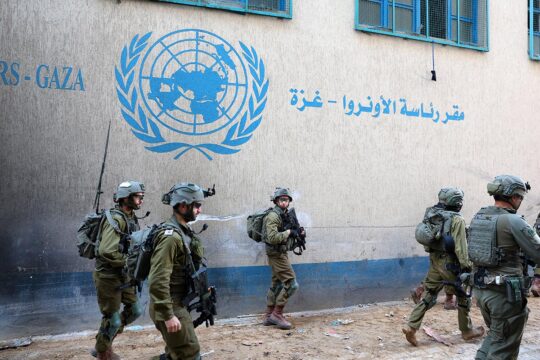A catastrophic airstrike on a hospital capped a disastrous week for US forces in Afghanistan, but many Afghans remain terrified at the prospect of their leaving, with the Taliban's brief capture of Kunduz exposing the lack of a credible alternative.
The bloody three-day conquest of the northern city was harsh evidence that Afghan forces are not yet able to face the insurgents on their own, despite the US pouring in more than $60 billion to train government troops and build their capacity since 2001.
Meanwhile US forces, who are officially tasked with an advisory and assistance role, are finding themselves regularly engaged in combat -- with all the risks that entails, including Saturday's devastating air raid on a hospital run by medical charity Doctors Without Borders (MSF) in Kunduz, which killed 22 people.
The strike, which MSF branded a possible war crime and which is now being investigated, came after 11 people were killed when an American military transport plane crashed in Jalalabad on Friday.
Now, as the Taliban trumpet their victory in Kunduz, the White House is again being forced to review its plans for the final exit of US troops -- currently set for 2016, the end of President Obama's term.
"As far as I know, the view of US army generals and officers on the ground in Afghanistan, as well as our own military leadership, is that maintaining a level of (US troops) beyond 2016 is necessary," Abdullah Abdullah, Afghanistan's chief executive said this week.
That view was echoed by Kunduz resident and student Shekib Ahmed, who told AFP that Afghan forces were still in dire need of more and better hardware.
"If the US wants to support Afghanistan, then they have to fully equip the Afghan army," he said.
- Alternatives -
According to the Washington Post, the White House is studying plans drafted by former chairman of the joint chiefs of staff Martin Dempsey to maintain up to 5,000 troops after 2016, against the 9,800 currently in place.
General John Campbell, the head of the NATO mission in Afghanistan, himself has presented five options ranging from a small residual force to up to 7,000 men, according to the same report.
"The president has indicated that he will be making decisions this fall about next year," US defence secretary Ashton Carter said Tuesday.
Campbell will head to Washington this week where he will be questioned in particular by Republican Senator John McCain, who has accused the Obama administration of having until now ignored ground realities when it comes to the withdrawal of troops.
Many analysts agree on the need for a longer-term engagement.
"I favour keeping 5,000 to 7,000 US troops in Afghanistan indefinitely," Michael O'Hanlon, an analyst at Brookings institute told AFP, adding American forces would be "ideally teamed with several thousand more from other NATO/coalition states".
- Propaganda win? -
While the MSF strike in particular has generated global indignation, there has been a more muted reaction to the events of the last week among many war-weary Afghans.
"The Taliban kill our people in suicide attacks and roadside bombs... but the Americans kill our people in bombardments and airstrikes," Kunduz resident Khalil Khan told AFP. "The US and the Taliban have both been the cause of sufferings for our people."
The insurgents, for their part, have loudly trumpeted their victory in Kunduz.
A Taliban source told AFP the offensive in the city was a "symbolic victory... we showed our power to the world".
Another Taliban source based in Pakistan said every militant group in Afghanistan was now praising the new leadership of Mullah Akhtar Mansour.
"All the splinter groups are now contacting us," the source said. "We are stronger than in the past."
As for the bombing of the hospital, the Taliban were quick to contrast the strike with what they claimed was their own treatment of MSF staff.
"Mujahidin provide security to @MSF staff & lend monetary help to patients during capture of #Kunduz, invaders bomb civilians & hospitals," an official spokesman said on Twitter.
Despite the insurgents' high spirits, they have not yet made their case as a credible alternative to the Afghan people who remember well their brutal five-year reign of power, said Pakistani analyst Rahimullah Yousafzai.
"They are largely seen as an armed force which imposes themselves on the people. They don't support democracy and they don't support human rights," he said.
"But look at the performance of the Afghan government," he added. "They are not able to provide security. The economy is going down and corruption is rising. Because of this the people would be hard pressed to support this government."
At a press conference Monday Campbell flagged the "pretty astounding" progress made by Afghan troops, all the while underscoring they still needed external support.
"They continue to be very, very resilient and they continue to need our support in areas that we've identified years ago that would be very, very tough for any army: intelligence, logistics, fire support," he said.


